Technical Activity Committee on TEST EDUCATION
| TAC Chair: | Sule OZEV, sule@ee.duke.edu |
This technical area has been active with TTTC help since 1995 and members of the TAC contributed actively to the recent NSF Workshop on Future Research Directions in Testing of Electronic Circuits and Systems, May 12-13,1998, Santa Barbara, CA. Further workshops are being planned for this important topic.
Test Education focuses on fundamental issues in undergraduate education on test. From the results of several surveys and discussions since 1995, it is clear that many universities have done well in training graduate students in test, but undergraduate test education remains weak or non-existent. These are selected findings and recommendations from our work, incorporated in the NSF report mentioned above:
- The test area has enough maturity to be taught at the undergraduate level.
- Students need some hands-on experience, computer-related projects, and whenever possible, laboratory experiments.
- Given the strong opinion that test must be taught in context of design, manufacturing, etc., we advocate the incorporation of test topics, laboratories, etc. into existing design courses as preferable to creating a new test course.
- Textbooks and materials: undergraduate level teaching will require a textbook (preferably on both design and test), and if possible, a laboratory manual to include experiments emphasizing test and measurement techniques applicable to test.
- A mechanism needs to be devised to offer a two-week course development seminar at a specific site to train professors to teach test materials. IEEE Computer Society Test Technology Technical Committee (TTTC) Test Education activity group has agreed to sponsor this two-week seminar.
- To make test more attractive to students, we need to work with companies to promote more co-op opportunities in test.
- We need to get several schools to try out the teaching of test as part of existing undergraduate design courses and learn from their experience on how to make it work well.
- The existing graduate-level test courses need to emphasize the context in which test is used, e.g., design, manufacturing, reliability. Test should never be taught as a stand-alone topic.
This TAC provides a mechanism for issues concerning ABET criteria for undergraduate teaching of test, curriculum development and models applicable to a wide range of universities. We also cooperate with other TACs in tutorials at conferences and workshops. We strongly encourage both academics and industry to participate in this important activity.
References
Report of the NSF Workshop on Future Research Directions in Testing of Electronic Circuits and Systems, May 12-13, 1998, Santa Barbara, CA.
